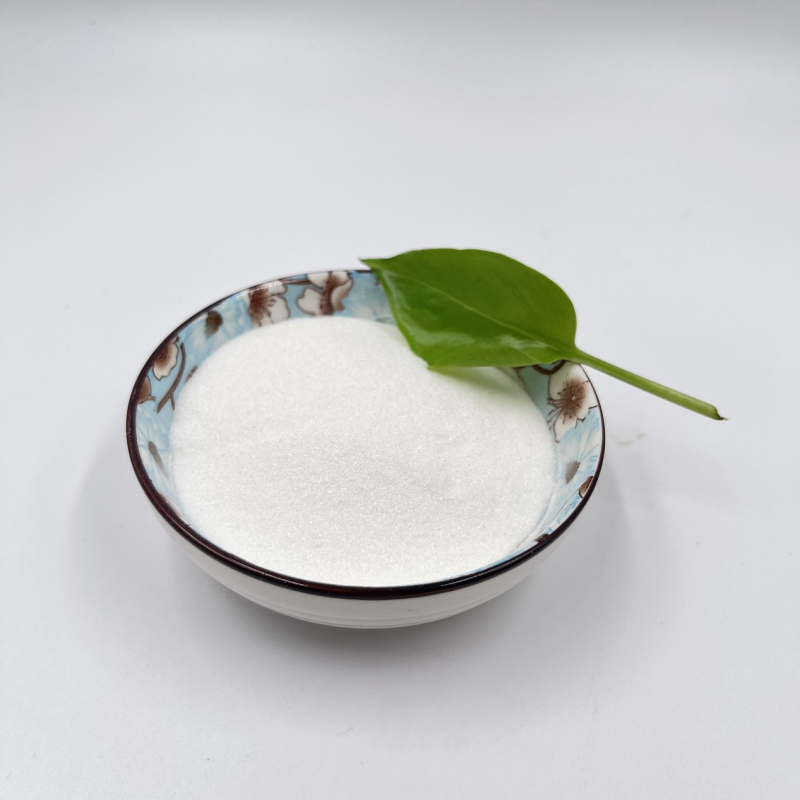Yohimbe risks may outweigh possible benefits
Yohimbe is an evergreen tree that grows in central and western Africa. The bark of the tree contains a compound called yohimbine. The Latin name for the herb yohimbe is Pausinystalia yohimbe. Xylazine Hydrochloride

It is important to note the difference between yohimbe and the similar sounding yohimbine. Yohimbine is a prescription drug (brand name Aphrodyne) sold in the United States for the treatment of erectile dysfunction. Its popularity has waned since the introduction of Viagra (sildenafil).
Yohimbe bark extracts are available in health food stores and online as dietary supplements. There is little to no research to support the benefits of yohimbe. Yohimbe can cause a dangerous rise in blood pressure, as well as anxiety and other side effects.
This article will discuss the research on yohimbe, its potential safety risks and side effects, and more.
Dietary supplements are not regulated the way drugs are in the United States, meaning the Food and Drug Administration (FDA) does not approve them for safety and effectiveness before products are marketed. When possible, choose a supplement tested by a trusted third party, such as U.S. Pharmacopeia (USP), ConsumerLab.com, or NSF International.
However, even if supplements are third-party tested, they are not necessarily safe for all or effective in general. Therefore, it is important to talk to your healthcare provider about any supplements you plan to take and ask about potential interactions with other supplements or medications.
Supplement use should be individualized and vetted by a healthcare professional, such as a registered dietitian, pharmacist, or healthcare provider. No supplement is intended to treat, cure, or prevent disease.
Traditionally, yohimbe was used as an aphrodisiac (substance that stimulates sexual desire). Today, it is still marketed for sexual health and other uses. So far, scientific evidence supporting the potential benefits of yohimbe is lacking.
Yohimbe bark extracts are widely promoted online and in health food stores as a natural aphrodisiac to increase libido and manage erectile dysfunction. However, there is no evidence to show that the herbal supplement is effective.
Most clinical studies have looked into the prescription drug yohimbine hydrochloride and not the herbal extract yohimbe.
For example, an analysis of eight studies examined yohimbine's use alone and combined with other interventions. Although yohimbine alone did not appear to affect the rate of sexual function significantly, the pooled results of both subgroups suggested an overall improvement. (Again, yohimbine is a prescription drug in the United States, and yohimbe is a supplement.)
In its guidelines on the treatment of erectile dysfunction, the American Urology Association does not recommend the use yohimbine due to a lack of sufficient evidence and potential safety risks.
Talk to your healthcare provider first if you are seeking treatment for erectile dysfunction.
Yohimbe is generally not recommended for weight loss, although it is sometimes marketed as such.
Overall, the findings on yohimbine's effects on weight loss have been mixed. Yohimbine has been found in preliminary research to increase lipolysis (fat burning) by increasing the release of the neurotransmitter (chemical messengers in the body) and hormone norepinephrine available to fat cells and blocking alpha-2 receptor activation, which increases the release of norepinephrine.
However, a systematic review (a review of multiple studies on a single topic) examining dietary supplements for weight management indicated there is not enough evidence to determine whether yohimbine aids with weight loss.
Despite the marketed benefits of yohimbe, there are serious health risks, which means you should not take it unless doing so under the supervision of a qualified healthcare provider.
In Germany, yohimbe is on the Commission E (the country's herbal regulatory agency) list of unapproved herbs because of concerns about the herb's safety and effectiveness. In the United States, the FDA has had reports of seizures and kidney failure following the use of yohimbe.
Side effects of taking yohimbe, as noted in studies on yohimbine, may include:
Taking high doses of yohimbe can be potentially dangerous, as noted in studies on yohimbine, leading to severe side effects such as:
Many supplement products containing yohimbe or yohimbine are inaccurately labeled, according to a review of 49 brands sold by seven major retailers in the United States.
The review found that only 11 of the 49 brands listed the specific quantity of yohimbine on the label, and many of these were not accurate. Additionally, 18% of the brands did not provide information about potential side effects. Only 4% of the brands provided accurate information about the quantity of yohimbine and its side effects.
Several groups should avoid taking yohimbe, either due to potential harm or lack of benefits:
There is no recommended dose of yohimbe. Yohimbe is not recommended because it has a very narrow therapeutic index. There is a relatively small dosing range—below it, the herb is ineffective, and above it, it can be toxic.
There is no scientific research that suggests a benefit of supplementing with yohimbe. The risks of yohimbe supplementation outweigh the potential benefits.
If you are experiencing erectile dysfunction or another condition for which you are considering yohimbe, talk to a healthcare provider and seek referrals if needed. There are other medications and treatments available with fewer side effects and safety concerns.
Yohimbe is considered to be likely unsafe. There isn't a lot of research to confirm the safety of its use in certain populations or specific dosages. Evidence shows it can cause dangerous side effects or interact with prescribed medications. Yohimbe has been associated with heart attacks, rapid heart rate, seizures, stomach problems, anxiety, and high blood pressure.
Yohimbe isn't banned in the United States. However, the federal government does prohibit products containing yohimbine from being marketed over the counter, as yohimbine is a prescription drug.
Due to inaccurate labeling of yohimbe products, some countries have banned yohimbe products altogether.
No natural remedy has proven effective and safe for erectile dysfunction. Many herbal remedies that claim to treat erectile dysfunction contain ingredients that can be dangerous in certain dosages or when combined with prescription medication. According to researchers, lifestyle changes, including diet and exercise, are the most effective natural ways to improve erectile function. If this doesn't help, consult a healthcare provider for an appropriate treatment regimen.
There are a few conflicting studies regarding yohimbe and weight loss. Some small trials have shown people lose weight while taking it, but other studies have shown no effect. Using it for weight loss can be unsafe since it can lead to serious side effects.
If you want to lose weight, discuss a plan with your healthcare provider and consult a registered dietitian and nutritionist to develop an individualized nutrition plan. Avoid relying on quick fixes that supplements often promise.
Tam S, Worcel M, Wyllie M. Yohimbine: a clinical review. Pharmacology & Therapeutics. 2001;91(3):215-243. doi:10.1016/s0163-7258(01)00156-5
Guay AT, Spark RF, Jacobson J, Murray FT, Geisser ME. Yohimbine treatment of organic erectile dysfunction in a dose-escalation trial. International Journal of Impotence Research. 2002;14(1):25-31. doi:10.1038/sj.ijir.3900803
Corazza O, Martinotti G, Santacroce R. Sexual enhancement products for sale online: raising awareness of the psychoactive effects of yohimbine, maca, horny goat weed, and ginkgo biloba. BioMed Research International. 2014;2014:1-13. doi:10.1155/2014/841798
National Center for Complementary and Integrative Health. Yohimbe.
Wibowo DNSA, Soebadi DM, Soebadi MA. Yohimbine as a treatment for erectile dysfunction: a systematic review and meta-analysis. Turk J Urol. 2021;47(6):482-488. doi:10.5152/tud.2021.21206
Burnett AL, Nehra A, Bereau RH, et al.Erectile dysfunction: AUA guideline.Journal of Urology.2018;200(3).663-641.
Bloomer RJ, Fisher-Wellman KH, Hammond KG, Schilling BK, Weber AA, Cole BJ. Dietary supplement increases plasma norepinephrine, lipolysis, and metabolic rate in resistance trained men. J Int Soc Sports Nutr. 2009;6:10. doi: 10.1186/1550-2783-6-10. Erratum for: J Int Soc Sports Nutr. 2009;6:4
Pittler MH, Ernst E. Dietary supplements for body-weight reduction: a systematic review. Am J Clin Nutr. 2004;79(4):529-536. doi:10.1093/ajcn/79.4.529
LaFrance WC Jr, Lauterbach EC, Coffey CE, et al. The use of herbal alternative medicines in neuropsychiatry. A report of the ANPA Committee on Research. J Neuropsychiatry Clin Neurosci. 2000;12(2):177-192. doi: 10.1176/jnp.12.2.177
Anderson C, Anderson D, Harre N, Wade N. Case study: two fatal case reports of acute yohimbine intoxication. Journal of Analytical Toxicology. 2013;37(8). doi: 10.1093/jat/bkt057
Kearney T, Tu N, Haller C. Adverse drug events associated with yohimbine-containing products: a retrospective review of the California Poison Control System reported cases. Ann Pharmacother. 2010;44(6):1022-1029. doi: 10.1345/aph.1P060
Yohimbine. LiverTox: Clinical and Research Information on Drug-Induced Liver Injury [Internet].
Cohen PA, Wang YH, Maller G, DeSouza R, Khan IA. Pharmaceutical quantities of yohimbine found in dietary supplements in the USA. Drug Test Anal. 2016;8(3-4):357-369. doi:10.1002/dta.1849
EFSA ANS Panel (EFSA Panel on Food Additives and Nutrient Sources Added to Food), 2013. Scientific Opinion on the evaluation of the safety in use of Yohimbe (Pausinystalia yohimbe (K. Schum.) Pierre ex Beille). EFSA Journal. 2013; 11( 7):3302; 46. doi:10.2903/j.efsa.2013.3302
Leisegang K, Finelli R. Alternative medicine and herbal remedies in the treatment of erectile dysfunction: A systematic review. Arab Journal of Urology. 2021;19(3):323-339. doi:10.1080%2F2090598X.2021.1926753
Cimolai N, Cimolai T. Yohimbine use for physical enhancement and its potential toxicity. Journal of Dietary Supplements. 2011;8(4):346-354. doi:10.3109/19390211.2011.615806
Yohimbe. Natural Medicines Database. Professional Monograph. 1/14/2019
Yohimbe. National Institutes of Health. National Center for Complementary and Integrative Health. September 2016
Yohimbe. Memorial Sloan Kettering Cancer Center. About Herbs, Botanicals, and Other Products. December 2013
Mann K et al. "Effects of Yohimbine on Sexual Experiences and Nocturnal Penile Tumescence and Rigidity in Erectile Dysfunction". Archives of Sexual Behavior. 25.1 (1996):1-16.
Morales A et al. "Is Yohimbine Effective in the Treatment of Organic Impotence? Results of a Controlled Trial". Journal of Urology. 137.6 (1987):1168-72.
Sax L. "Yohimbine Does Not Affect Fat Distribution in Men". International Journal of Obesity. 15.9 (1991):561-5.
Vogt HJ et al. "Double-Blind, Placebo-Controlled Safety and Efficacy Trial With Yohimbine Hydrochloride in the Treatment of Nonorganic Erectile Dysfunction". International Journal of Impotence Research. 9.3 (1997):155-61.
By Jennifer Lefton, MS, RD/N, CNSC, FAND Jennifer Lefton, MS, RD/N-AP, CNSC, FAND is a Registered Dietitian/Nutritionist and writer with over 20 years of experience in clinical nutrition. Her experience ranges from counseling cardiac rehabilitation clients to managing the nutrition needs of complex surgical patients.
Thank you, {{form.email}}, for signing up.
There was an error. Please try again.

4-Anisic Acid Powder By clicking “Accept All Cookies”, you agree to the storing of cookies on your device to enhance site navigation, analyze site usage, and assist in our marketing efforts.